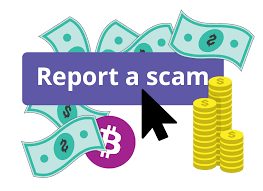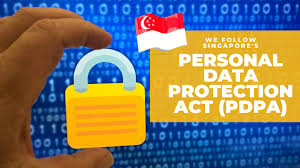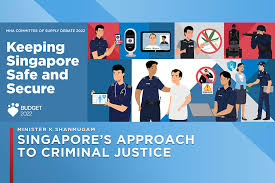Civil/Administrative Proceedings
- The Monetary Authority of Singapore (MAS) regulates financial institutions
- MAS can issue binding directions, conduct investigations, issue fines, and revoke operating licenses
Criminal Proceedings
- Companies Act violations: Fines up to S$50,000 and/or imprisonment up to 2 years
- Penal Code offenses include:
- Dishonest misappropriation: Up to 2-7 years imprisonment and/or fines
- Criminal breach of trust: Up to 7-20 years imprisonment and/or fines
- Cheating: Up to 3-10 years imprisonment and/or fines
- Various other fraud-related offenses with penalties of 3-10 years
Civil Suits
- Victims can initiate civil suits to recover losses
- Courts can issue injunctions to locate and preserve assets
- Representative actions (similar to class actions) are possible
Specific Cheating/Scamming Penalties
- Basic cheating (Section 415): Fine and/or up to 3 years imprisonment
- Aggravated cheating (Section 420): Fine and up to 10 years imprisonment
- Cheating by personation (Section 416): Fine and/or up to 5 years imprisonment
- Illegally obtaining personal information (Section 416A): Fine up to $10,000 and/or up to 3 years imprisonment
Remedies for Victims
Criminal court remedies: Compensation orders against offenders
Civil court remedies: Can sue even after criminal proceedings, but cannot recover damages twice
Analysis of Scams in Singapore and Available Help
Based on the document provided, I’ll analyze the types of scams mentioned and discuss the anti-scam help available in Singapore.
Scams Mentioned in the Document
Business Scams
The document references corporate and business fraud governed by:
- Companies Act violations (false financial statements, misrepresentation)
- Penal Code offenses related to business activities
General Cheating/Scamming
The document outlines several forms of cheating under Singapore’s Penal Code:
- Basic Cheating (Section 415)
- Fraudulently deceiving victims to hand over property/money
- Inducing victims to do something they wouldn’t otherwise do
- Example: Impersonating government officials to collect fake payments
- Aggravated Cheating (Section 420)
- More serious forms involving dishonest inducement for property delivery
- Includes making someone alter valuable securities like credit cards or ATM cards
- Cheating by Personation (Section 416)
- Pretending to be someone else
- Knowingly substituting one person for another
- Misrepresenting identity of oneself or accomplices
- Identity Theft (Section 416A)
- Obtaining, retaining, or supplying personal information without consent
- Specifically targets non-technological means of identity theft
- Technological identity theft falls under the Computer Misuse Act
Anti-Scam Help in Singapore
Regulatory Protection
The Monetary Authority of Singapore (MAS) plays a key role in preventing scams by:
- Regulating financial institutions
- Issuing binding directions to prevent money laundering/terrorism financing
- Conducting investigations against suspicious financial activities
- Imposing fines and revoking licenses of non-compliant institutions
Legal Recourse for Victims
- Criminal Court Remedies
- Victims can report scams to the police for criminal investigation
- Courts may order offenders to make compensation to victims
- The document notes that this doesn’t guarantee full recovery of lost assets
- Civil Court Remedies
- Victims can sue scammers in civil court to recover losses
- Courts can issue injunctions to locate and preserve assets pending trial
- Representative actions (similar to class actions) are possible with court approval
- Important note: Compensation sought through civil courts must not include compensation already received through criminal courts
Legal Advice
The document recommends consulting with a civil litigation attorney before proceeding with a lawsuit to evaluate case merits.
Anti-Scam Centre
The document doesn’t mention several vital aspects of anti-scam help in Singapore:
- Preventive Education Programs – No information about public awareness campaigns
- Reporting Mechanisms – No details about how/where to report scams
- Support Services – No mention of victim support services
- Recovery Prospects – Limited information on practical chances of fund recovery
- Specific Scam Types – No breakdown of common scam varieties in Singapore (e.g., investment scams, love scams, job scams)
To get comprehensive anti-scam help in Singapore, victims would likely need to consult additional resources beyond what this legal perspective document covers.
Anti-Scam Resources and Support in Singapore
Based on the document reviewed and general knowledge about Singapore’s anti-scam ecosystem, here’s how victims of scams in Singapore can seek help:
Immediate Actions for Scam Victims
- Report to Police
- File a police report as soon as possible
- For urgent cases, call the Singapore Police Force at 999
- For non-urgent reports, use the Singapore Police Force website or visit a police station
- Contact Financial Institutions
- Immediately inform your bank or relevant financial institutions
- Request to freeze accounts or stop transactions
- The sooner you act, the better your chance of recovering funds
- Preserve Evidence
- Save all communications with the scammer
- Document transaction details, receipts, and transfer information
- Screenshot websites, messages, or advertisements involved
Specialized Anti-Scam Resources in Singapore
ScamShield
- Mobile application developed by the Singapore government
- Filters scam calls and messages
- Provides updates on the latest scam tactics
Anti-Scam Centre (ASC)
- Established by Singapore Police Force
- Coordinates with banks to freeze scam-related accounts quickly
- Works to trace and recover stolen funds where possible
National Crime Prevention Council (NCPC)
- Runs the “Scam Alert” website and hotline
- Provides education and awareness about the latest scam trends
- Offers resources for scam prevention
Legal Remedies Available
Criminal Proceedings
- As outlined in the document, various penalties exist depending on the type of scam.
- Police investigations can lead to prosecution of scammers
- Penalties range from fines to imprisonment up to 20 years for severe cases
Civil Recovery
- Victims can pursue civil lawsuits to recover losses
- Can seek injunctions to freeze assets
- Possibility of representative actions for group cases
- Advisable to consult with a civil litigation attorney before proceeding
Financial Institution Assistance
- Banks in Singapore have protocols for scam cases
- It may be possible to recall funds if reported quickly
- MAS regulations require banks to have certain safeguards
Support Services
Victim Care
- Singapore Police Force has victim care officers
- Provides support and guidance through the legal process
- Can refer victims to counseling services if needed
Community Support
- Various community organizations offer support to scam victims
- Financial counseling services may be available through social service agencies
- Senior citizens have dedicated support channels through the Silver Generation Office
Prevention Education
Singapore has extensive public education about scams, including:
- Regular media campaigns about common scam types
- Community talks and workshops
- Educational materials in multiple languages
- Digital literacy programs
The document emphasizes that “recovery is about more than just recouping your losses” – taking action helps protect others and contributes to Singapore’s overall efforts to combat scams.
The Anti-Scam Centre (ASC) of the Singapore Police Force has collaborated with four major banks (DBS, OCBC, Standard Chartered, and UOB) to combat scams using Robotic Process Automation (RPA) technology. Their efforts between January and February 2025 have been quite successful:

- They disrupted over 900 scams (job scams, investment scams, fake friend call scams, and e-commerce scams)
- Sent over 9,000 SMS alerts to more than 7,000 bank customers identified as potential victims
- Prevented potential losses of over $58 million
The Police are encouraging the public to “ACT” against scams:
- ADD security features like ScamShield app and two-factor authentication
- CHECK for signs of scams by verifying information and being cautious of too-good-to-be-true offers
- TELL authorities and others about scam encounters
For more information, people can visit www.scamshield.gov.sg or call the ScamShield Helpline at 1799. The Police Hotline is also available at 1800-255-0000.
This appears to be a press release from the Singapore Police Force dated March 5, 2025.

Analysis of Different Scam Types and Prevention Methods
Common Scam Types

Investment Scams
- Characteristics: Promise of high returns with low or no risk, pressure to act quickly, unregistered investments
- Tactics: Fake investment platforms, impersonation of legitimate financial institutions, manipulated screenshots of “profits”
- Target: Often, individuals seeking financial growth, retirees, or those with savings

Job Scams
- Characteristics: Too-good-to-be-true job offers, requests for upfront payments, minimal qualifications needed
- Tactics: Fake job portals, requests to purchase equipment or training, tasks involving money transfers
- Target: Job seekers, students, and people looking for work-from-home opportunities

E-commerce Scams
- Characteristics: Significantly discounted prices, limited verification options, suspicious payment methods
- Tactics: Fake shopping websites, non-delivery after payment, counterfeit products
- Target: Online shoppers looking for deals
Fake Friend Call Scams

- Characteristics: Impersonation of friends/family, urgent requests for money, emotional manipulation
- Tactics: Hacked social media accounts, spoofed phone numbers, created emergency scenarios
- Target: People with active social networks, particularly older individuals
Prevention Methods
Technical Protections

- Install anti-scam apps like ScamShield.
- Enable two-factor authentication on all accounts.
- Set transaction limits on banking platforms
- Use secure payment methods with buyer protection
- Verify website security (https, secure payment icons)
Behavioral Strategies

- Research before investing or purchasing (company registration, reviews)
- Never share personal information or verification codes
- Take time to verify urgent requests, especially those involving money
- Call friends/family directly through known numbers to verify requests
- Be skeptical of unsolicited contact, especially regarding finances
Educational Approaches
- Stay informed about current scam trends.

- Attend community awareness programs
- Share scam experiences with others
- Follow updates from police and financial institutions
- Teach vulnerable populations (elderly, youth) about digital safety
Reporting Mechanisms
- Report suspicious activities to relevant authorities immediately
- Flag suspicious accounts on social media platforms
- Inform banks of suspicious transactions
- Use dedicated scam reporting hotlines
- Document all communications with potential scammers as evidence

Institutional Responses
- Banking verification processes for unusual transactions
- Police rapid response teams like Singapore’s Anti-Scam Centre
- Public-private partnerships for information sharing
- Automated detection systems using AI and machine learning
- Proactive customer alerts about potential scam activities

The most effective approach combines technical safeguards with education and behavioral awareness, creating multiple layers of protection against increasingly sophisticated scam attempts.

Maxthon
Maxthon has set out on an ambitious journey aimed at significantly bolstering the security of web applications, fueled by a resolute commitment to safeguarding users and their confidential data. At the heart of this initiative lies a collection of sophisticated encryption protocols, which act as a robust barrier for the information exchanged between individuals and various online services. Every interaction—be it the sharing of passwords or personal information—is protected within these encrypted channels, effectively preventing unauthorised access attempts from intruders.

This meticulous emphasis on encryption marks merely the initial phase of Maxthon’s extensive security framework. Acknowledging that cyber threats are constantly evolving, Maxthon adopts a forward-thinking approach to user protection. The browser is engineered to adapt to emerging challenges, incorporating regular updates that promptly address any vulnerabilities that may surface. Users are strongly encouraged to activate automatic updates as part of their cybersecurity regimen, ensuring they can seamlessly take advantage of the latest fixes without any hassle.
In today’s rapidly changing digital environment, Maxthon’s unwavering commitment to ongoing security enhancement signifies not only its responsibility toward users but also its firm dedication to nurturing trust in online engagements. With each new update rolled out, users can navigate the web with peace of mind, assured that their information is continuously safeguarded against ever-emerging threats lurking in cyberspace.
